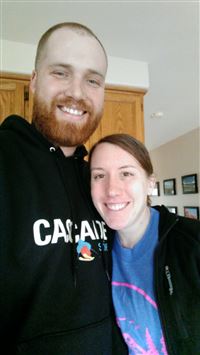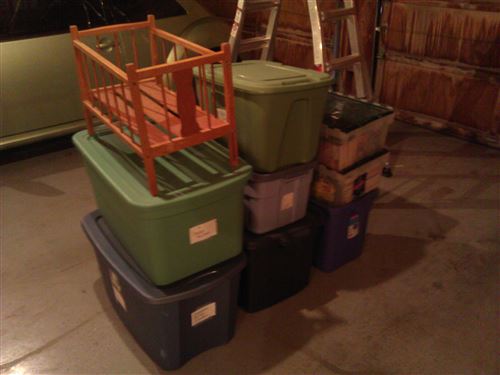 Last year I bought my first shotgun, and even though I’d been around shotguns my whole life, I didn’t really know where to start. There are many people who know way more about guns than me. If you have detailed questions, go ask someone like KenC or LoganB. But if you’re just looking for the super basics, maybe something in this post will help you. I know it was a daunting task for me. As I looked around online I found forum and after forum of people arguing tiny little details about very specific gun parts instead of giving me the overall guidance I was looking for. So in this post, I’ll describe what I was looking for, some features I looked at along the way, and what I ended up with.
Last year I bought my first shotgun, and even though I’d been around shotguns my whole life, I didn’t really know where to start. There are many people who know way more about guns than me. If you have detailed questions, go ask someone like KenC or LoganB. But if you’re just looking for the super basics, maybe something in this post will help you. I know it was a daunting task for me. As I looked around online I found forum and after forum of people arguing tiny little details about very specific gun parts instead of giving me the overall guidance I was looking for. So in this post, I’ll describe what I was looking for, some features I looked at along the way, and what I ended up with.
First off, I’m not really interested in hunting. I have nothing against it and could see picking it up in the future, but this gun purchase was 100% for shooting trap. If you’re going to be hunting, then you might want to research what characteristics work well for the animal you’re hunting.
There are lots of shotgun sizes. You could get (in order of smallest to largest) a .410, 20 gauge, 16 gauge, 12 gauge, 10 gauge or even an 8 gauge. Those numbers refer to the diameter of the barrel. The 12 gauge is the most popular and is pretty much the only thing you’ll see at the trap range unless a junior is there with a 20 gauge.
Once you decide on the size of the gun, you need to figure out how the gun will cycle through multiple shots.
- A single shot gun means that you put one shell in at a time. Every time you fire you break the barrel open, eject the old shell and put the next one in.
- Pump shotguns will hold about five shells. After you shoot, you pull the forestack back and push it forward again to eject the old shell and insert the new shell. This is a very common entry level gun.
- A semi-automatic shotgun looks roughly like a pump shotgun except that every time you shoot, the shell is automatically ejected and the next one is chambered. You can immediately pull the trigger again to fire the next round.
- An over-under shotgun has two barrels with one on top of the other. You break the barrel open to manually insert a shell in each barrel, but then you can rapidly shoot two shells in succession.
- A side-by-side is similar to an over-under except the barrels are laid out horizontally instead of vertically. These aren’t too common anymore.
A semi-automatic or over-under is what you’ll see more advanced trap shooters using because the more complicated versions of the game require multiple shots. You can’t really use a pump shotgun fast enough to get off two shots in trap. Those types of guns are also significantly more expensive. This was going to be my first gun. I didn’t know how long I’d stick with the sport so I didn’t want to spend a ton. That meant I was getting a pump.
At this point I knew I was getting a 12 gauge pump and I just had to pick out the specific model. Two of the most common entry level guns in this category are the Mossberg 500 and the Remington 870. Both have been produced for the last 40-50 years. That means they’ve worked out all the bugs and there is a huge after market parts selection if you want to customize your gun. Plan on spending about $400-500 for the gun, a cleaning kit and a case. I chose the Remington 870 but they’re both good American-made guns. The other things you’ll need right off the bat are some kind of ear protection (foam ear plugs work fine) and safety glasses.
Both of these guns come in multiple barrel lengths. Most trap shooters will use a barrel between 28 and 32”. The longest Remington 870 gun I could find came with a 28” barrel, but as I mentioned before, you can buy other barrels for it down the road. I haven’t done that yet and don’t plan to. My first purchase will probably be a longer stock because that part is a bit to short for me. This is also useful if you’re looking for a home defense shotgun. You could buy one of these guns and then buy a second, shorter barrel.
So how do you buy a gun? That varies widely by state and what type of gun you’re buying. In Washington, you just walk into a store, fill out some paperwork, wait a few minutes for them to do a quick background check by phone and then you’re walking out with a shotgun. Shop around because prices do vary. While Sports Authority isn’t the first place I’d think to buy a gun, they had the best deal so that’s where I bought it. There are used markets for shotguns, but be careful to check the laws about transferring ownership and make sure you know the quality of what you’re buying. If you really want to go used, you might want to start with an actual gun dealer for your first purchase.
Once you have the gun, check out wheretoshoot.org to find a range near you. If you live around me, check out the Kenmore Shooting Range. They have archery, rifle, pistol, and shotgun facilities available. Their website is about 10 years old, but the facility and the people that run it are great. I’d be more than happy to go with you and show you around.
 Late one night a few years ago, I discovered a Martens Brewery in Belgium. For a 255 year old brewery, they have an embarrassingly bad website that stymied my attempts to learn more about them. Here’s what I do know. The brewery is in Bocholt Belgium and it was founded in 1758. Their signature beer is the Martens Pilsner, and like me, it’s tall. It’s sold in 16.9 oz cans. I don’t know how big they are, but they do seem to be distributed around the world since I found a Taiwanese commercial for Martens beer. But that’s about where my research ended. I couldn’t figure out how to buy any.
Late one night a few years ago, I discovered a Martens Brewery in Belgium. For a 255 year old brewery, they have an embarrassingly bad website that stymied my attempts to learn more about them. Here’s what I do know. The brewery is in Bocholt Belgium and it was founded in 1758. Their signature beer is the Martens Pilsner, and like me, it’s tall. It’s sold in 16.9 oz cans. I don’t know how big they are, but they do seem to be distributed around the world since I found a Taiwanese commercial for Martens beer. But that’s about where my research ended. I couldn’t figure out how to buy any.
 I’ve gotten used to having my hair cut pretty low. I like being able to cut it by myself for free whenever I feel like it, and I like being able to wear a hat or helmet without getting hat hair. This winter I’ve been supplementing the short hair with a beard.
I’ve gotten used to having my hair cut pretty low. I like being able to cut it by myself for free whenever I feel like it, and I like being able to wear a hat or helmet without getting hat hair. This winter I’ve been supplementing the short hair with a beard.
 Last year I bought my first shotgun, and even though I’d been around shotguns my whole life, I didn’t really know where to start. There are many people who know way more about guns than me. If you have detailed questions, go ask someone like KenC or LoganB. But if you’re just looking for the super basics, maybe something in this post will help you. I know it was a daunting task for me. As I looked around online I found forum and after forum of people arguing tiny little details about very specific gun parts instead of giving me the overall guidance I was looking for. So in this post, I’ll describe what I was looking for, some features I looked at along the way, and what I ended up with.
Last year I bought my first shotgun, and even though I’d been around shotguns my whole life, I didn’t really know where to start. There are many people who know way more about guns than me. If you have detailed questions, go ask someone like KenC or LoganB. But if you’re just looking for the super basics, maybe something in this post will help you. I know it was a daunting task for me. As I looked around online I found forum and after forum of people arguing tiny little details about very specific gun parts instead of giving me the overall guidance I was looking for. So in this post, I’ll describe what I was looking for, some features I looked at along the way, and what I ended up with. Credit cards are getting stolen a lot these days, but the credit card companies are getting really good at detecting this. The last time it happened, I received a call after only one fake charge had been made and I hadn’t even noticed it! The replaced my card and the whole situation barely made me miss a step.
Credit cards are getting stolen a lot these days, but the credit card companies are getting really good at detecting this. The last time it happened, I received a call after only one fake charge had been made and I hadn’t even noticed it! The replaced my card and the whole situation barely made me miss a step.
 I’ve made beer twice in my life so I’m an expert and would like to share my learnings with you. It turns out there is a lot more to beer bottle preparation than I knew. When the guys told me to start saving beer bottles, I did what I think most people would do. I kept the old box, rinsed out the bottles when I was done with them and dropped the bottles in right side up. Well what do you think happens when you put a slightly wet bottle in a dark place and leave it for a while? MOLD. It was pretty gross, but luckily they were salvagable. Here’s the process for reusing a beer bottle.
I’ve made beer twice in my life so I’m an expert and would like to share my learnings with you. It turns out there is a lot more to beer bottle preparation than I knew. When the guys told me to start saving beer bottles, I did what I think most people would do. I kept the old box, rinsed out the bottles when I was done with them and dropped the bottles in right side up. Well what do you think happens when you put a slightly wet bottle in a dark place and leave it for a while? MOLD. It was pretty gross, but luckily they were salvagable. Here’s the process for reusing a beer bottle. 
Cupid